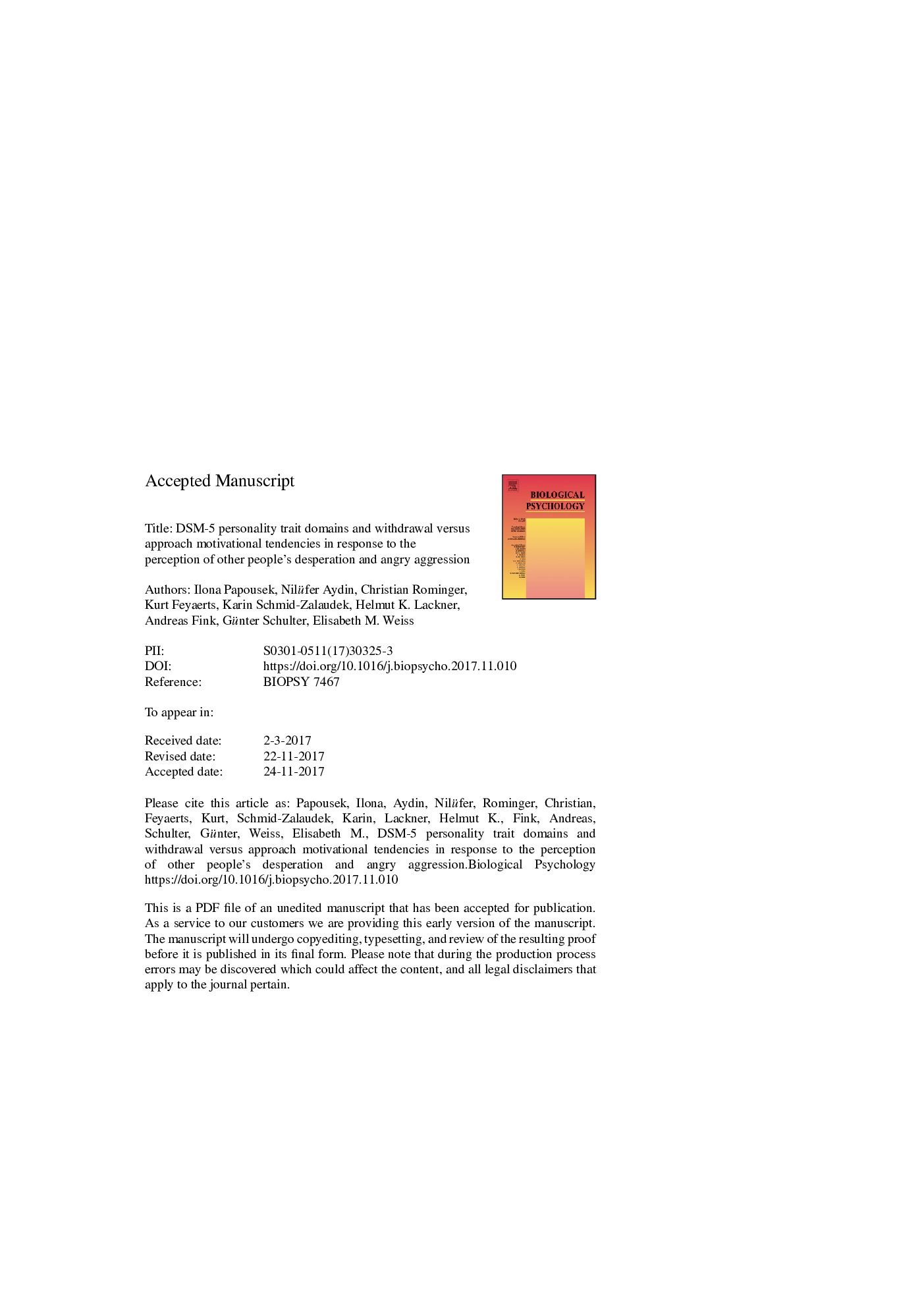| Article ID | Journal | Published Year | Pages | File Type |
|---|---|---|---|---|
| 7278201 | Biological Psychology | 2018 | 42 Pages |
Abstract
Expressions of affect communicate social messages, which trigger approach and withdrawal/avoidance motivational tendencies in the observer. The present study investigated relationships between inter-individual differences in the motivational responses to other people's affect expressions and DSM-5 personality trait domains. State-dependent, transient EEG alpha asymmetry responses provided indicators of the relative activation of withdrawal versus approach motivation in the respective social-emotional contexts. The Personality Inventory for the DSM-5 (PID-5) was used for the assessment of personality traits in a non-clinical sample. Individuals with higher levels of Antagonism showed relative activation of approach versus withdrawal motivation (as indicated by less relative right frontal activation) in response to confrontation with auditory expressions of angry aggression, whereas participants with higher levels of Detachment showed relative activation of withdrawal versus approach motivation (as indicated by greater relative right frontal activation) to the perception of other people's desperate crying.
Related Topics
Life Sciences
Neuroscience
Behavioral Neuroscience
Authors
Ilona Papousek, Nilüfer Aydin, Christian Rominger, Kurt Feyaerts, Karin Schmid-Zalaudek, Helmut K. Lackner, Andreas Fink, Günter Schulter, Elisabeth M. Weiss,
